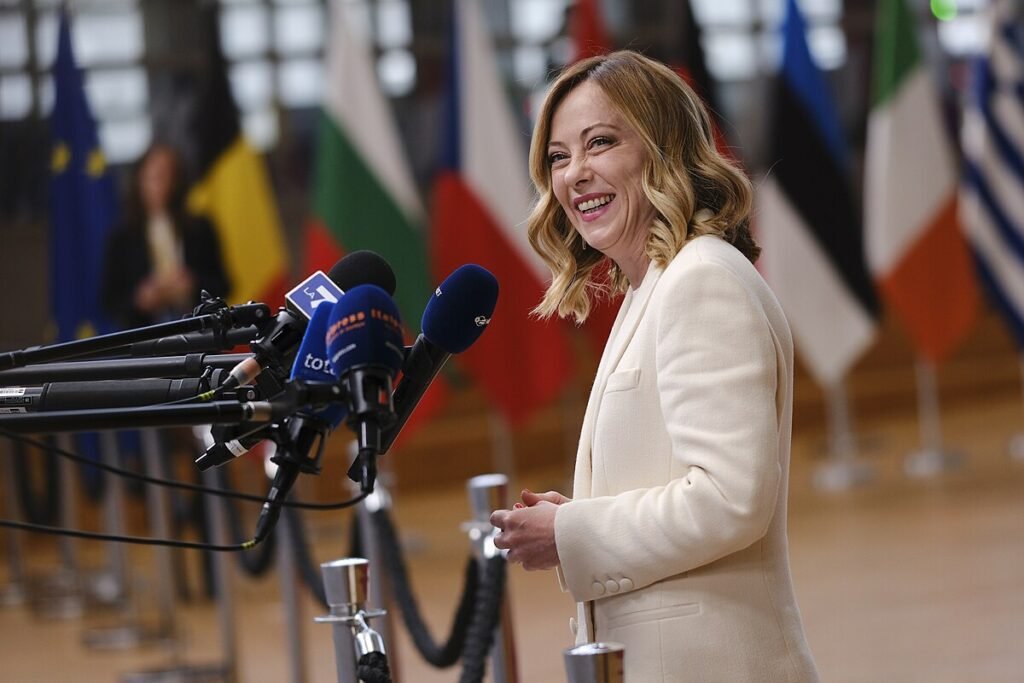Italian Prime Minister Giorgia Meloni has embarked on her inaugural official visit to China, marking a significant diplomatic milestone. Arriving in Beijing on July 27, Meloni’s five-day trip aims to recalibrate Italy’s relationship with China, focusing on key issues including bilateral trade and the ongoing conflict in Ukraine.
Meloni’s visit is seen as a crucial effort to “relaunch bilateral relations in sectors of common interest,” according to an Italian official who spoke to AFP under the condition of anonymity. The prime minister’s agenda includes high-level meetings with Chinese President Xi Jinping and Premier Li Qiang, signaling a commitment to fostering stronger ties between the two nations.
The Italian official emphasized that the discussions will encompass “the main issues on the international agenda, starting with the war in Ukraine,” highlighting the visit’s geopolitical significance. This emphasis on global conflicts underscores Italy’s intention to play a more proactive role in international diplomacy.

The Context of Italy’s Diplomatic Shift
Prime Minister Meloni’s visit comes against the backdrop of Italy’s recent withdrawal from China’s Belt and Road Initiative (BRI), a massive infrastructure and investment project spearheaded by Xi Jinping. Italy had previously been the only G7 nation to join the BRI, a move that was widely criticized and deemed a strategic misstep by Meloni before she assumed office.
The BRI memorandum of understanding, which Italy exited last year, had included broad commitments to cooperation in logistics, infrastructure, finance, and environmental sectors. However, the initiative’s lack of transparency and the ensuing distrust among Italy’s allies prompted Meloni’s administration to reconsider its involvement.
Italy’s Position on the Belt and Road Initiative
Before taking office, Meloni publicly criticized the BRI, labeling Italy’s participation as a “mistake.” Her administration’s withdrawal from the initiative reflected a strategic pivot away from China’s expansive global influence. The decision to distance Italy from the BRI was partly driven by concerns over the transparency and strategic implications of the partnership, which had been perceived as problematic by both Italy’s domestic stakeholders and its international allies.
Focus on Trade and Global Issues
Meloni’s current visit emphasizes a desire to recalibrate Italy’s engagement with China, focusing on areas of mutual interest that could benefit both nations. The upcoming meetings with top Chinese officials are expected to address economic cooperation, trade enhancements, and collaborative efforts on global issues, including the ongoing conflict in Ukraine.
The prime minister’s trip represents a strategic opportunity for Italy to redefine its relationship with China, moving from a previously contentious partnership to a more balanced and transparent dialogue. By prioritizing trade and global diplomacy, Meloni aims to navigate the complex terrain of international relations while strengthening Italy’s position on the global stage.
Conclusion
Giorgia Meloni’s visit to China is poised to be a significant diplomatic event, reflecting Italy’s strategic adjustments in its foreign policy. The focus on trade and critical global issues, coupled with the reevaluation of previous agreements like the Belt and Road Initiative, marks a pivotal moment in Italy’s international relations. As Meloni meets with Chinese leaders, the outcomes of these discussions could have lasting implications for Italy’s global strategy and its role in addressing major international conflicts.
In summary, Prime Minister Meloni’s Beijing visit is more than just a ceremonial engagement; it represents a calculated effort to reset and reinforce Italy’s diplomatic and economic ties with China while addressing pressing global challenges.








